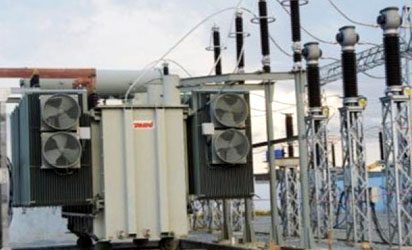National Issues
In The Grip Of Darkness -By Kene Obiezu
While the other costs of Nigeria`s embarrassing struggles to light up the country are tallied, the eleven trillion naira allegedly sunk into the power sector from 1999 has yielded only darkness.
The most galling part of it is that no one has been held to account.

In many ways, Africa and its fifty-four countries, appear to be a continent left far behind as the rest of the world has made strides towards a better future for all. This fact is most ironic when consideration is given to the fact that Africa is largely considered to be the cradle of humankind.
The question then is: if the continent which was the first to give light to a world that was lurching about in darkness now knows a darkness as deep as death, is there really any hope for it.
Startling statistics
It can only be scandalous that in this age and time, when many parts of the world are seamlessly breaking new grounds in technological advancement, about six hundred million Africans live without electricity.
But this darkness goes deeper than physical darkness. It is a metaphorical kind of darkness, one which speaks to the governance issues guzzling up the continent like a herd of famished cattle eating up grass.
A scandal of darkness.
The Africa Energy Outlook 2022, a product of the International Energy Agency is as revealing as reports come.
The United Nations Sustainable Development Goal 7(SDG 7) aims to ensure access to affordable, reliable, sustainable and modern energy for all.
By 2019, African was already off track to reach the SDG 7 for access to electricity and clean cooking, while the expected outcome has deteriorated markedly as a result of the pandemic due to project delays and lower household incomes.
In 2021,43% of the Population of Africa, around 600 million people, still lacked access to electricity,590 million of them were in sub-Saharan Africa. The pandemic has slowed the rate of both new grid and off-grid connections.
This reflects a combination of logistical and financial hurdles related to the disruption in supply chains caused by lockdowns and other social restrictions, as well as the financial difficulties of households, utilities and equipment suppliers caused by the pandemic-related slump in economic activity.
According to the report, the number of people without access in sub-Saharan Africa is estimated to have increased by 4% in 2021 relative to 2019, effectively reversing the gains made over the previous five years.
According to the report, the number of Africans lacking access to clean cooking fuels and technologies has also increased through the pandemic. More than 970 million people- almost three quarters of the entire population lacked access to clean cooking facilities in 2021.
The number increased by an average of 17 million, 2% per year between 2010 and 2019, notably as rapid population growth outpaced efforts to increase access.
For all these figures, many Nigerians remain without electricity or at best, epileptic power supply. While electricity tariffs are arbitrarily hiked from time to time, it has also become routine for the national grid to collapse from time to time, casting many parts of the country into darkness.
The size of the problem that poor power supply has been in Nigeria is best reflected in how much the business environment has been affected by epileptic power supply, and just how many businesses have had to fold up, move, or carry on under backbreaking conditions.
While the other costs of Nigeria`s embarrassing struggles to light up the country are tallied, the eleven trillion naira allegedly sunk into the power sector from 1999 has yielded only darkness.
The most galling part of it is that no one has been held to account.
Kene Obiezu,
keneobiezu@gmail.com

















